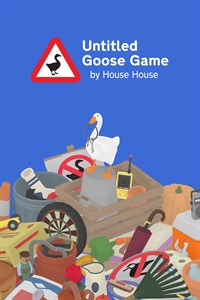 I’ve been vaguely aware of Untitled Goose Game for some time, in the sense of, oh, hey, someone made another game like Goat Simulator, but for geese. Which sounded, you know, fine. At the same time, even though GS is on Game Pass, I have not really been itching to give it another try and finish this time, for whatever reason. Maybe I’m wrong? UGG is what was going to convince me I was wrong, if anything would.
I’ve been vaguely aware of Untitled Goose Game for some time, in the sense of, oh, hey, someone made another game like Goat Simulator, but for geese. Which sounded, you know, fine. At the same time, even though GS is on Game Pass, I have not really been itching to give it another try and finish this time, for whatever reason. Maybe I’m wrong? UGG is what was going to convince me I was wrong, if anything would.
So you’re this goose, right? Or, these geese, if you play multiplayer, as I did[1]. And you have a to-do list, some of which are things that might be fun for you and mostly harmless, but which really seem to annoy the humans around you, while others are, uh, pretty clearly designed to annoy the humans around you with no other particular benefit, except that it’s funny. Eventually your to-do list has an event that causes a new area (with a new to-do list!) to be unlocked. And so on, until you finish the game. Some of the bits are complicated to figure out, while others are complicated to execute, but it’s mostly a light puzzle game that you can breeze through in a few hours.
Which Mary and I did on Friday night, including the list of bonus to-do’s you can accomplish[2], some of which don’t even make sense to try until you’ve won once. And almost all of which are just purely mean, meaner than most of the previous mean things you’ve already done. …I did mention this is a game about geese, right?
Near the end of the night came the cruelest goose trick of all: even though we were both logged in on our accounts, Mary was not getting any of the achievements credited to her gamer score. This was especially painful because she was the one who wanted to cross off all the extra items in the first place; I had already been satisfied.
But I mean, it also ended up being fun, which is much better than if it had been grinding for points.
[1] Multiplayer is mildly annoying in that the screen only gets so big, so the geese have to stay together and can maybe get each other stuck. We played on a shared screen, but I assume that the same limitations apply to a remote multiplayer game. I also assume that remote multiplayer even exists.
[2] And not including the speed runs, which are all we left undone. I understand intellectually that some people are really into speed runs, but ain’t nobody got time for that.
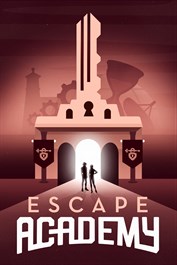 This week in “We played it just before it fell off Game Pass, so now you can’t!”, I bring to you Escape Academy. The conceit is, escape rooms, but what if there was a Hogwarts for them? And really… there’s not a lot to talk about here. There is a story, technically, and the graphics are pretty terrible, but what actually matters to your enjoyment of the game is if you want to play escape room puzzles, some of which eventually get pretty tricky.
This week in “We played it just before it fell off Game Pass, so now you can’t!”, I bring to you Escape Academy. The conceit is, escape rooms, but what if there was a Hogwarts for them? And really… there’s not a lot to talk about here. There is a story, technically, and the graphics are pretty terrible, but what actually matters to your enjoyment of the game is if you want to play escape room puzzles, some of which eventually get pretty tricky.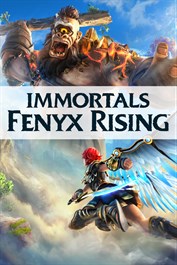
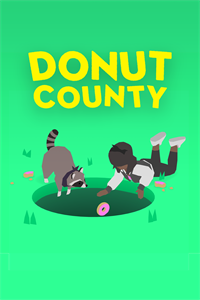 The thing about
The thing about  Because I am extremely timely, have another review of a game that’s leaving Game Pass today!
Because I am extremely timely, have another review of a game that’s leaving Game Pass today!  I’ve been vaguely aware of
I’ve been vaguely aware of 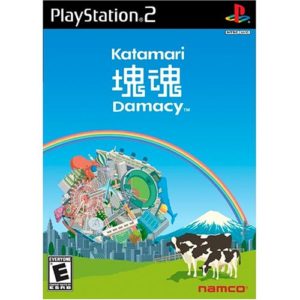 If I had to pick one game in all the world most likely to have universal appeal,
If I had to pick one game in all the world most likely to have universal appeal, 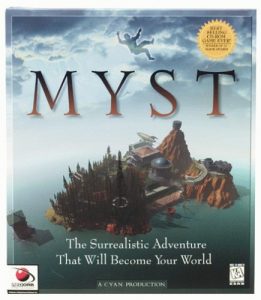 A very long time ago, I spent a week in Southern California, right after the spring semester. Mostly hanging out on the beaches watching bikini babes rollerblading by on the boardwalk, right? Well, obviously not, because I’m me. No, a big part of that time, I played Road Rash on the Sega and
A very long time ago, I spent a week in Southern California, right after the spring semester. Mostly hanging out on the beaches watching bikini babes rollerblading by on the boardwalk, right? Well, obviously not, because I’m me. No, a big part of that time, I played Road Rash on the Sega and